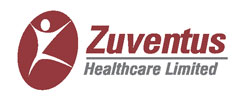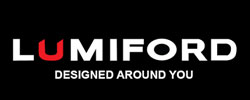The Department for Promotion of Industry and Internal Trade (DPIIT), under the Ministry of Commerce and
Industry, issued a notification titled the "Toys (Quality Control) Order." This notification, effective
from 1st September 2020, lays down guidelines to ensure that all toys manufactured, imported, and sold
in India adhere to specific standards set by the Bureau of Indian Standards (BIS). As per this order,
the BIS is responsible for granting licenses for toy production and issuing the Standard ISI Mark under
Scheme I and Scheme II of the BIS (Conformity Assessment) Regulation, 2018.
Indian manufacturers seeking BIS certification for toys must apply for the Conformity Assessment to
obtain product certification. Meanwhile, foreign manufacturers wishing to sell their toys in India are
required to obtain BIS certification through the Foreign Manufacturers Certification Scheme (FMCS). This
ensures that their products meet Indian safety and quality standards.
Under the Toys (Quality Control) Order 2020, BIS certification is mandatory for all toys, particularly
those intended for children under the age of fourteen. Both electric and non-electric toys must carry
the BIS certification with the ISI Mark. Toys without this certification are prohibited from being sold
in the Indian market.
The Indian Standards Institute (ISI) is a certification scheme under the BIS, designed to ensure that
products available in the Indian market conform to Indian Standards. Additionally, the Foreign
Manufacturer Certification Scheme (FMCS) is introduced for foreign manufacturers to comply with Indian
Standards. Without FMCS certification, foreign-manufactured toys cannot be imported or sold in India.
Categories of toys under BIS Certification for Toys
The BIS certification for toys categorizes toys into different types to ensure that each category adheres
to specific safety and quality standards. These categories are primarily based on the nature and usage
of the toys. Here are the key categories under BIS Certification for Toys:
- Non-Electric Toys: This category includes all toys that do not require any
electrical power to operate, such as stuffed animals, puzzles, building blocks, action figures,
and dolls. These toys must meet standards related to mechanical and physical properties,
toxicity, flammability, and more.
- Electric Toys: Toys that require electrical power, such as battery-operated or
plug-in toys, fall under this category. Safety standards focus on electrical hazards,
overheating, insulation, and battery safety.
- Ride-On Toys: This includes bicycles, tricycles, and scooters specifically designed
for children. These toys must meet standards that address physical stability, strength, and risk
of injury.
- Activity Toys: These are toys designed for physical play, like swings, slides, and
climbing frames. The standards ensure structural safety, materials used, and weight-bearing
capacities.
- Soft-Filled Toys: These include soft toys like plush animals and other fabric-based
items. Standards for this category focus on the filling materials, ensuring they are non-toxic,
free from sharp objects, and safe for children.
The specification concerning BIS Certification for toys are provided below:
| Indian Standard |
Title |
| IS 9873 (Part 1):2018 |
Safety of toys part 1, safety aspects related to Mechanical and physical aspects. |
| IS 9873 (Part 2): 2017 |
Safety of toys part 2, flammability |
| IS 9873 (Part 3): 2017 |
Safety requirements for toys part 3 Migration of certain elements |
| IS 9873(Part 4): 2017 |
Safety of toys part 4 swings, slides and similar activity toys for indoor and outdoor activity
domestic use. |
| IS 9873 (part 7): 2017 |
Safety of toys part 7, requirement and test methods for finger paints |
| IS 9783 (Part 9): 2017 |
Safety of toys part 9, certain phthalates ester in toys and children’s products |
| IS 15644:2006 |
Safety for electronic toys |
Benefits of BIS Certification for Toys
Here are the key benefits of obtaining a BIS Certification for toys
 Shields your business
from potential legal actions, penalties, or fines that could arise from non-compliance with
certification requirements.
Shields your business
from potential legal actions, penalties, or fines that could arise from non-compliance with
certification requirements. Serves as solid proof
that your toys have been rigorously tested and certified according to the highest safety
standards and regulations.
Serves as solid proof
that your toys have been rigorously tested and certified according to the highest safety
standards and regulations. Builds trust with
consumers, offering them a sense of security and ensuring your toys are readily accepted in the
market.
Builds trust with
consumers, offering them a sense of security and ensuring your toys are readily accepted in the
market. Gives your brand a
competitive edge over global competitors by demonstrating a commitment to safety and quality.
Gives your brand a
competitive edge over global competitors by demonstrating a commitment to safety and quality.
 Facilitates smoother
market entry and acceptance, positioning your products favorably within the Indian and global
markets.
Facilitates smoother
market entry and acceptance, positioning your products favorably within the Indian and global
markets.
 Confirms your
products meet unmatched quality standards, strengthening your brand's reputation.
Confirms your
products meet unmatched quality standards, strengthening your brand's reputation. Opens doors to
international markets, making it easier to expand your reach in the global toy industry.
Opens doors to
international markets, making it easier to expand your reach in the global toy industry.
Documents Required for BIS Certification for Toys:
 Application Form
Application Form Business Registration
Proof
Business Registration
Proof Manufacturing License
Manufacturing License
 Factory Layout Plan
Factory Layout Plan
 Test Reports
Test Reports
 Quality Control
Documents
Quality Control
Documents List of Machinery
List of Machinery
 Authorized Signatory
Document
Authorized Signatory
Document Trademark
Registration Certificate
Trademark
Registration Certificate Sample Products
Sample Products Proof of Factory
Location
Proof of Factory
Location BIS License Fee
Payment Receipt
BIS License Fee
Payment Receipt
BIS Certification for Toys Application Procedure
 Submit the
application form and self-attested documents.
Submit the
application form and self-attested documents. BIS evaluates the
documents and conducts a factory inspection.
BIS evaluates the
documents and conducts a factory inspection.
 Authorized personnel
collect samples for testing.
Authorized personnel
collect samples for testing.
 Samples are tested by
a BIS-recognized laboratory.
Samples are tested by
a BIS-recognized laboratory.
 BIS reviews the test
results and inspection report.
BIS reviews the test
results and inspection report.
 If standards are met,
BIS grants certification and the ISI Mark.
If standards are met,
BIS grants certification and the ISI Mark.
BIS FMCS Certification Application Procedure for Toys
For obtaining BIS FMCS Certification for Electric and Non-Electric Toys, the process involves several
steps. Initially, the applicant must complete and submit the application form along with the necessary
documents. The required fee must be paid, and upon successful payment, BIS conducts a factory
inspection. During this inspection, BIS-authorized personnel collect toy samples for independent testing
at a BIS-recognized laboratory.
Once the factory and manufacturing processes are verified to comply with BIS standards, the FMCS
certification procedure begins. The applicant then pays the Minimum Marking Fee in advance for
certification. Following this, an Agreement and Indemnity Bond must be signed, and a Performance Bank
Guarantee is required to be paid in US Dollars upon receiving FMCS License approval.
If the product meets all standards, BIS issues the FMCS Certification, allowing foreign manufacturers to
use the ISI Mark on their toys.
Frequently Asked Questions
1.What is BIS Certification for toys?

BIS Certification ensures that toys meet safety and quality standards set by the Bureau of Indian
Standards (BIS) for sale and use in India.
2.Who needs BIS Certification for toys?

All manufacturers and importers of toys intended for children under fourteen must obtain BIS
Certification to comply with Indian regulations.
3.What are the main standards for BIS Certification?

The key standards include IS 9873 (Parts 1-4, 7, 9) for general toy safety, and IS 15644 for
electronic toys.
4.How long does it take to get BIS Certification?

The process typically takes a few months, depending on the completeness of the application, the
efficiency of factory inspections, and the time required for product testing.
5.What documents are required for BIS Certification?

Required documents include the application form, business registration proof, manufacturing
license, factory layout, product specifications, test reports, quality control documents, and
payment receipts.
6.What is the process for foreign manufacturers to obtain BIS Certification?

Foreign manufacturers must apply under the Foreign Manufacturers Certification Scheme (FMCS),
including submitting necessary documents, paying fees, and undergoing testing and inspection.









